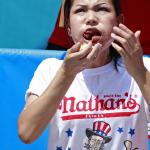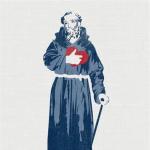Long-term planning to familiarize preschoolers of the second junior group with their hometown. Long-term work plan for familiarization with the native land in the senior preparatory school group. Ways to achieve the goal
Purpose regional component- protection and development of regional education systems cultural traditions and features; maintaining a single educational space in Russia; physical direction of the region's activities; ensuring the rights of the younger generation to accessible education; equipping preschoolers with a system of knowledge about the region.
Education in the regional component is based on the continuity of generations, the uniqueness of the natural, cultural and historical environment and the regional education system as the most important factor in the development of the territory.
The natural, cultural-historical, socio-economic uniqueness of the area predetermines the selection of the content of the regional component of education, the assimilation of which allows preschool educational institution graduates to adapt to living conditions in the nearest society, to become imbued with love for their native land, and to cultivate the need for healthy way life, rational use of natural resources, environmental protection.
Download:
Preview:
Long-term plan work to familiarize children with their hometown
Preparatory group
Educator: Klimenko T.M.
DATE | SUBJECT | AREAS | |
September | Our Motherland in Russia | R.R. Social.com ISO | Conversation “Name of the city”, |
October | City `s history | R.r. Reading S.K.r. Artistic Activity | Conversation “History of the city”, |
November | City attractions 1 (Mud baths, Drinking gallery, Resort park) | R.r. Etc. Reading S.K.r. Artistic Act. | |
December | Sights of the city 2 (San. Victoria, Mechanotherapy, Upper baths) Goal: To arouse children’s interest in the history of the appearance of historical monuments of the city, to cultivate a sense of pride in the city | R.r. Etc. Reading S.K.r. | City tour “City attractions”, Getting to know the symbols of the city of Essentuki" |
January | Symbols of the city | RR Hood. Act. TFR | Getting to know the city's coat of arms |
February | Famous people of the city | RR Hood. Act. TFR | |
March | Hometown businesses | RR Etc. Hood. Act. TFR | D/I “Whose logo” |
April | This is my street | RR Hood. Act. TFR | Walking around the neighborhood |
May | Battle glory of the city | ETC TFR HOOD ACT |
CORRECTION SHEET
A long-term plan for working with children to get acquainted with their hometown
DATE | SUBJECT | AREAS | |
SEPTEMBER | Our homeland is in Russia Goal: To clarify children’s knowledge that our city has a name; how it came about; instill a sense of pride in him | R.R. Social.com | Conversation “Name of the city”, Reading poems about Essentuki, Looking at a map of the Stavropol Territory |
October | City `s history Goal: to introduce children to the history of the city, its name; arouse interest in your city, instill a sense of pride in it. | R.r. Reading S.K. | Conversation “History of the city”, Reading legends about the emergence of the city, Examination of Essentuki postcards |
November | The city's attractions Goal: To arouse children’s interest in the history of the appearance of historical monuments of the city, to cultivate a sense of pride in the city | City tour “City attractions”, Getting to know the symbols of the city of Essentuki" |
|
December | Symbols of the city Goal: to introduce the symbols of Essentuki and the Stavropol Territory | Getting to know the city's coat of arms Getting to know the symbols of Essentuki D/I “Fold the coat of arms and flag of Essentuki” |
|
January | Famous people of the city Goal: to arouse in children interest in the life of the city of Essentuki, a sense of respect and pride for famous fellow countrymen. | RR Hood. Act. TFR | Conversation “Famous fellow countrymen” (artists, writers). Examination of artists' reproductions. |
February | Hometown businesses Goal: to introduce the sanatoriums of Essentuki, to instill in children a sense of respect for working people. Interest in professions | D/I “Whose logo” D/I "Sanatoriums of Essentuki" |
|
March | |||
April | This is my street Goal: to continue to develop children’s interest in their small homeland, streets, and residential buildings; To consolidate knowledge of home address, to give children an idea of the origin of some city streets. | Walking around the neighborhood Quiz “Hometown Experts” |
|
May | Battle glory of the city Goal: To introduce the memorable places of the war in Essentuki; cultivate a sense of gratitude towards WWII veterans | ETC TFR HOOD ACT | Excursion to Victory Park to the Eternal Flame Making crafts for WWII veterans |
The program “Yoshkar-Ola is not just a Red City...” to familiarize preschoolers with their native land was compiled taking into account the basic general education program preschool education“From birth to school” edited by N. E. Veraksa, T. S. Komarova, M. A. Vasilyeva
Explanatory note
Preschool age is the most favorable period for instilling in children love for their small Motherland, pride in their native places, knowledge of history and culture, and solving problems of reviving spirituality and moral ideals.
With the study of the territory of the native land, knowledge of the country begins, which is extremely important in instilling in children a love for their Fatherland.
The implementation of activities within the framework of the program “Yoshkar-Ola is not just a Red City...” to familiarize preschoolers with their native land is aimed at preparing children to master the history of their region and at developing patriotism.
The program is compiled taking into account the main general educational program of preschool education “From birth to school” edited by N. E. Veraksa, T. S. Komarova, M. A. Vasilyeva, based on methodological developments: T. I. Sofronova, V. A. Shabalkina . "In the world of national art." - Yoshkar-Ola: Mari Book Publishing House, 2007; Kolesnikova T.A. “We understand, we develop, we model.” - Y-Ola: Mari Institute of Education, 1996.
Target: To instill in preschoolers a love for their small Motherland, RME.
Tasks:
- Expand children's understanding of their hometown and region.
- Introduce famous people and landmarks.
- Introduce to culture, traditions, past.
- Instill a sense of pride and love for your republic, your small homeland.
The goals and objectives of this program will be achieved in close cooperation with the families of the students.
In order to consolidate knowledge about the republic and cultivate an emotional response, it is recommended to conduct excursions, targeted walks, hikes, and organize a weekend group for parents and children to visit the sights of the city.
The program implements the principles of comprehensive thematic planning, accounting age characteristics children, integration educational process. It is recommended to begin work on implementing the program from the second junior group.
Long-term planning in the second junior group on the topic
|
Month Subject |
Target |
Events |
|
September Autumn. Vegetables. Fruits |
Formation of a basic understanding of vegetables and fruits of the native land, familiarization with the peculiarities of the season |
1) Game “Wonderful Basket” 2) Game “Fruits and Vegetables” 3) Review competition “Gifts of Autumn” 4) Conversation “Autumn is the golden time” 5) Reading thin. Literatures: A. Pleshcheev “Autumn is the golden time” Balmont "Autumn" 6) Examination of illustrations by famous artists “Seasons”, “Autumn” |
|
October Flora of the Mari region |
Formation elementary ideas about plants of our native land |
1) Lesson: “Journey to the Mari forest” 2) Reading fiction 3) Consideration of serial postcards |
|
November Fauna of the Mari forests |
Give an initial idea of wild animals, their habitat, external signs |
1) Game “Where is my home?” 2) The game “Who lives in the house?” (puzzles) 3) Game “Who did Stepka meet?” 4) Mysteries of the Mari region 5) Design of the album “Forest Dwellers” 6) Game “Flies, swims” |
|
December Mari region |
Forming children's ideas about the birds of the Mari region, showing care and reverent attitude towards them |
1) Game “What kind of birds?” 2) Album design 3) Making feeders for wintering birds 4) Bird watching 5) Reading works: “Where did the sparrow have dinner?” 6) Learning the games “Birds and Chicks”, “Birds in Nests” |
|
January Holiday decoration cities |
Instill love for the native land, give an idea about the holidays |
1) Design of the carnival album “Carnival Costume” 2) Festive Christmas tree decoration 3) Review of the album “Masks” 4) Making toys 5) Walking with parents 6) Consideration of buildings made of ice |
|
February Winter fun, children's vacation spot |
Encourage children to talk about where they spend their weekends and their fun |
1) Album design “Winter” 2) Newspaper design: “My day off” 3) Competition: “Best Snowman” 4) Reading poetry, fairy tales about winter 5) Examination of illustrations |
|
March Yoshkar-Ola - favorite city |
Teach children to name and love their hometown |
1) Game “Trip around the city” 2) Family newspaper competition “The Unusual and the Beautiful Are Nearby” 3) Reading poems about the city |
|
April Day off in hometown |
Teach them to name their city, encourage them to tell them where they went for a walk on the weekend (park, square...) |
1) Design of the album “My Day Off” 2) Looking at the photo “Beautiful places in the city” |
|
Day off at the dacha |
Formation of a positive attitude towards the work of adults, the desire to take part in feasible work |
1) Ball game “Plants of the forest, garden, vegetable garden” 2) Design of the family newspaper “My Day at the Dacha” 3) Examination of the photo “Garden Plants” |
Long-term planning in the middle group on the topic:“Introducing preschoolers to their native land”
|
Month Subject |
Target |
Events |
|
September Vegetable world Mari region |
Consider ideas about the diversity of the plant world, their significance in people’s lives |
1) Conversation “Forest pharmacy in the service of man” 2) Project “Charming Weed” 3) Game " Medicinal plants- a means of healing the body" 4) Examination of illustrations “Plants of our region” |
|
October Wild animals of the Mari forests, nutrition, preparation for winter, how to escape from enemies |
Consider ideas about domestic and wild animals, how they adapt to living conditions |
1) Animal riddle competition 2) Board game"Animals and their young" 3) Examination of illustrations 4) Classification of wild and domestic animals 5) Reading fairy tales and looking at illustrations for them 6) Game “At the Bear in the Forest” |
|
November Yoshkar-Ola, getting to know the city |
Continue the conversation about your hometown, get acquainted with the names of the streets of the city, be able to talk about it |
1) Children's story: “My day off” 2) Game-travel around the city 3) Board game “Building a city” |
|
December Street where the kindergarten is located |
Continue to cultivate love for your native land, introduce the names of the streets on which the kindergarten is located, o beautiful places |
1) Creative story “I love my kindergarten” 2) Drawing competition “Streets are different” 3) Beautiful corners streets |
|
January Street where the house is located |
Continue to cultivate love for the native land, familiarity with the names of the streets where children live |
1) Conversation: “My garden on Dimitrov Street” What does it mean? 2) Drawing competition “The house where I live” |
|
February Public holidays |
Give children understandable ideas about public holidays |
1) Conversation: “No one is forgotten, nothing is forgotten” 2) sports festival“Dad, mom, I am a sports family 3) Drawing competition based on epics and folk tales |
|
March Landmark city details |
Continue to cultivate love for your native land, talk about the most beautiful places in the city, its attractions |
1) Getting to know the boulevards 2) Film poster of the city 3) Drawing competition “Poster for your favorite fairy tales” 4) Correspondence trip to the museum |
|
April The most beautiful places in the city |
Continue to cultivate love for your native land, talk about the most beautiful places in your native city |
1) Family drawing “My favorite places in the city” 2) Game “Travel to Hometown” 3) Learning poems about your favorite city |
|
Getting to know the Kokshaga River |
Expand children's understanding of the reservoirs of their region |
1) Role-playing game"Visiting the inhabitants of the underwater kingdom" 2) Examination of illustrations 3) Walks along the river embankment 4) Familiarity with the rules of behavior on the water |
Forward planning in senior group on this topic: “Introducing preschoolers to their native land”
|
Month Subject |
Target |
Events |
|
September Vegetation Red Book |
Clarify and consolidate children’s ideas about plants listed in the Red Book, responsibility for the environment |
1) Lesson: “Plants listed in the Red Book” 2) Design of the album “Protect the Plants” 3) Competition of nature experts 4) Solve the crossword puzzle 5) Examination of postcards “We are from the Red Book” 6) The Red Book of our region is a danger signal |
|
October Rules of behavior in nature |
Learn to behave in such a way as not to harm nature and respect it |
1) Lesson-holiday “Protecting nature means protecting the homeland” 2) Dramatization “Rules of behavior in nature” 3) Consideration of signs of behavior in nature 4) Drawing competition “Rules of behavior in the forest” 5) Drawing up rules for behavior in nature with children 6) Collaboration children with parents “Let’s protect nature” |
|
November Animals of the Red Book |
Introduce children to animals of your region that are listed under human protection |
1) Project: “Red Book” 2) Game “We are from the Red Book” |
|
December Kokshaga River - a legend |
Expand children's understanding of the river |
1) Reading Mari fairy tales 2) Drawing competition “Through the pages of Mari fairy tales” 3) Consideration of illustrations depicting Mari heroes 4) Sports leisure “Entertainment and Heroic Strength” 5) Design of the album “Rules of behavior on the water” 6) Poster competition-seminar “Clean City” |
|
January Flag and coat of arms Yoshkar-Ola |
Introduce children to the flag and coat of arms, foster a sense of pride in the city |
1) Conversation “Acquaintance with the coat of arms of Yoshkar-Ola” 2) Conversation “Tricolor of the flag of the republic” 3) Game “Collect the coat of arms” (puzzles) 4) Competition “Family Coat of Arms” |
|
February Getting to know the attraction city news |
Tell children about the sights of the city, cultivate a sense of love and pride |
1) Game "Taxi" 2) Applications “Our city” 3) Drawing competition “My favorite place in the city” |
|
March Folk traditions, customs |
Cultivate love for your native land. Introduce folk traditions, customs. Generate interest in the small Motherland |
1) Introduction to Mari folk games 2) Mari folk holiday"Peledysh-pairem" 3) Applications “Mari national costume” 4) Learning Mari folk riddles 5) Listening to Mari songs |
|
April Meeting Mari writers |
Formation of interest in the small Motherland, stories with famous people. Cultivate love and pride |
1) Reading Mari fairy tales 2) Drawing competition based on a fairy tale read 3) Poetry competition 4) Consideration of portraits of Mari writers 5) Consideration of illustrations for fairy tales |
|
Public holidays |
Expand children's understanding of their native country and public holidays. Foster love for the Motherland |
1) Lesson “In Memory of Defenders of the Fatherland” 2) Family newspaper: “No one is forgotten, nothing is forgotten” 3) Meeting with a veteran of the Great Patriotic War 4) Monument: “Eternal Flame” Visit with parents 5) Victory Park |
Long-term planning in the pre-school group
Oksana Petukhova
Long-term planning for introducing children to their hometown middle group
Long-term planning for introducing children in the middle group to their hometown.
September.
"My family"
1. Conversation "Family"
2. Creating an album "Me and my mom".
"My hometown
1. Getting to know each other children with the history of the city and its modernity. Provide information about why the city is named so.
2. Examination of illustrations, an album, a set of postcards with views cities.
3. GCD "My city»
Tasks: Clarify knowledge children about family members, their names, professions.
Target walk to a nearby street.
1. Drawing on a theme: "My street" and our child. garden.
2. Children's room play activity : "Houses on our street".
Tasks: Clarify knowledge children about the name of their hometown. Introduce the origins of the city of Shuya. Cultivate love for hometown and a feeling of pride in him. Develop an interest in history and modernity cities, its present, its attractions; develop an interest in history cities, feelings of love and patriotism.
Note children for that, what in there are many streets in the city, each street has its own name, there are many houses on the street, each house has its own number. Remember the names of the streets where children live. Learn children use previously acquired knowledge to build different houses.
"Attractions hometown» .
1. Bell tower of the Resurrection Cathedral.
2. Sights of our cities.
3. Looking at photographs "My Shuya city» .
4. Conversations with children about who in their family served in the army or was at war.
5. Examination of illustrations about the army and military equipment.
Tasks: Introduce children with sights hometown, their history.
Looking at a photo "Eternal flame", talk about who this monument was erected to. Form patriotic feelings.
"Transport of our cities»
1. Monitoring traffic on the street.
2. Examination of illustrations depicting different types transport.
3. Conversations with children about the rules of behavior on the street.
Tasks: Build knowledge children about our transport cities. Clarify ideas about cargo and passenger cars, about passenger mode of transport. Meet children with basic rules of behavior on the street, teach them to follow them.
"Rest in our city»
1. Conversation « Urban park of culture and recreation".
2.“Favorite vacation spots with parents”.
Tasks: Enrich knowledge children about their hometown. Tell where the park is located, whose name it bears, what entertainment there is in the park for children. Where else in our children love to relax in the city what they like best there. Develop memory and speech.
1. Looking at photographs and illustrations "This Victory Day...".
2. Flora native land - conversation.
3. Animal world native land. Creating a corner "Victory Day".
Tasks: Fostering respect and a sense of pride for those who gave their lives for their Motherland. Form patriotic feelings. Introduce children with the flora and fauna of the region, its representatives.
Publications on the topic:
"Architecture of the native city." A series of didactic games to familiarize yourself with your hometown
A series of didactic games to familiarize yourself with your hometown “City Attractions” Author: Verkhovtseva Elena Valerievna, teacher, MBDOU kindergarten No. 148, Ulyanovsk Methodological development on the topic: “Know and love yours.
There are truths that make up the foundations of our lives, which must enter our consciousness with mother’s milk. Among them, love must come first.
“City of Masters” A series of didactic games to familiarize yourself with your hometown. Block: “City of Masters.” Sections: “Landscape painting by Ulyanovsk artists”, “Paintings by Ulyanovsk portrait painters”.
"City on the banks of the Volga." A series of didactic games to familiarize yourself with your hometown Author: Verkhovtseva Elena Valerievna, teacher, MBDOU kindergarten No. 148, Ulyanovsk Methodological development on the topic: “Know and love yours.
"My city, my street." A series of didactic games to familiarize yourself with your hometown. Block: “Illustrious names of Simbirsk-Ulyanovsk.” Sections: “My city, my street”, “Names dear to the heart”.
"Our traditions." A series of didactic games to familiarize yourself with your hometown Author: Verkhovtseva Elena Valerievna, teacher, MBDOU kindergarten No. 148, Ulyanovsk Methodological development on the topic: “Know and love yours.
Project on moral and patriotic education on the topic: “My favorite city.” Middle group
"I found out that I have
There is a huge relative:
And the path and the forest,
In the field - every spikelet,
River, the sky is above me -
This is all mine, dear!”
V. Orlov
Project type: informational and creative.
Implementation period: 1 year
Problem
Children do not think about the fact that the city in which they live is their small homeland. They don’t know anything about its history or attractions.
Relevance
Of great importance for cognitive, social-personal and moral development children preschool age has familiarity with his hometown, its attractions, the street where the child lives, with famous people who built our city.
Parents have insufficient knowledge about their city, do not pay attention to this problem, considering it unimportant, children do not have sufficient information about their hometown. Without sufficient knowledge, it is difficult to form a respectful attitude towards the small Motherland.
Objective of the project:
Implementing an integrated approach to education in the spirit of patriotism, introducing preschoolers to the history and culture of their hometown, local attractions, nurturing love and affection for their native land.
Project objectives:
- Create conditions for the perception of information about the cultural appearance of the native land;
- Develop a caring attitude towards the city, its attractions, cultural values, and nature;
- Develop children's coherent speech; enrich and activate children’s vocabulary, teach them to think freely and fantasize;
- Cultivate a sense of pride for their fellow countrymen, an emotional and value-based attitude towards the region.
Project participants
Children 4-5 years old (middle group), teachers, parents.
Predicted result.
- Enriched and systematized children’s knowledge about the city. A steady interest in studying this problem has been formed.
- Participation of families of pupils in the educational process.
- Developed methodological and didactic support for this section.
- The implementation of the project will improve children's, parental and pedagogical competence in matters of history and culture of the city of Naberezhnye Chelny, and will help to form a caring attitude towards their hometown.
Consequently, this project contributes to the formation of not only cognitive interest, but also has social significance.
Project implementation
The project is being implemented in 3 stages.
Stage I - preparatory, includes:
survey of parents' knowledge and ideas about their hometown, its history, attractions,
diagnosing children in order to identify the level of formation of knowledge and ideas about the history and culture of their hometown.
Stage II - the main one, includes:
classes with children in accordance with the long-term plan,
joint events with families of pupils,
replenishment of the development environment,
exhibitions of children's works, family collections, employee collections
A long-term work plan to familiarize children with their hometown.
1. Questioning parents. Diagnosing children
Goal: To identify the knowledge of children and their parents about the city of Naberezhnye Chelny.
2. NOD “My city - Naberezhnye Chelny”
Purpose: To clarify children’s knowledge about the name of their hometown.
To evoke in children a feeling of admiration for the beauty of their hometown.
3. Listening to songs about your hometown, reading poetry
Goal: To arouse interest in your hometown, instill a sense of pride in it.
4. Compiling stories “The House Where I Live”
Goal: To reinforce with children the knowledge of their home addresses
5. Stories about attractions
Goal: To instill interest in the historical and cultural heritage, to promote a sense of pride in the architectural monument of the city
6. Getting to know the city's coat of arms
“Draw the family coat of arms.” Purpose: To give an idea of what a coat of arms is, to explain the symbolism of the coat of arms of the city of Naberezhnye Chelny. Cultivate a respectful attitude towards the symbols of the city.
7. Parents' place of work
Goal: To consolidate children’s knowledge about cultural and social objects located in the micro-site of our kindergarten
Clarify with children the knowledge of the professions of people working at these facilities
8. They glorified our city.
Conversation about the importance of the work of all people
Goal: To arouse in children an interest in the life of the city of Naberezhnye Chelny, a sense of respect and pride for their famous fellow countrymen.
9. Targeted walk along nearby streets. Goal: To fix the names of nearby streets, cultural and social facilities located on them
Find out the address of the kindergarten
10. Didactic game “Trip around the city”
Goal: To arouse children's interest in the history of the emergence of historical monuments of the city
11. Conversation “How can I help my hometown?”
Goal: To make children want to keep their yards clean and tidy so that they are clean and beautiful.
12. Design of the newspaper “Walking along the city streets”
Goal: To cultivate love for your hometown, remember its attractions
13. Photo exhibition together with parents “Nature of the native land.”
Goal: To instill love for one’s hometown, for one’s native places; be proud to live in the city of Naberezhnye Chelny
14. GCD “What do we know about our hometown”
Purpose: To identify children’s knowledge about their hometown.
To cultivate love for our city, a sense of pride that we live in the city of Naberezhnye Chelny
15. Visit of children together with parents to the city history museum
Goal: To arouse children’s interest in the history of the city’s historical monuments
16. Military glory of the city.
Conversation about the exploits of soldiers in the Great Patriotic War. Making holiday cards
Goal: To make children want to imitate military personnel, to be as courageous and brave
Final diagnosis of children. Repeated questioning of parents.
Goal: To identify the knowledge of children and their parents about the city of Naberezhnye Chelny during the implementation of the project.
Stage III: final
-Rewarding competition winners and parents with letters of gratitude.
-Analysis of the results of project activities.
-Generalization of experience at the teachers' council.
Literature.
Aleshina N.V. Introducing preschoolers to their hometown. - M.: TC Sfera, 1999. - 112 p.
Aleshina N.V. Patriotic education of preschool children. - M.: TsGL, 2004. - 156 p.
Internet sources
Rybalkova I. Getting to know your hometown as a means patriotic education. // Preschool education 2003, no. 6. pp. 45 - 55.
Yakusheva T. A. Education of civil and patriotic feelings in a child of senior preschool age. // Preschool pedagogy 2006, № 6.
A long-term work plan for introducing middle school children to their hometown.
date
Subject
September
City birthday
Listening to songs about your hometown, reading poetry,
- exhibition children's drawing"My favorite city"
October
My little homeland
- making an album, composing stories “The House Where I Live”
-
November
History of the city
- production of the album “Nature of my land”,
- design of the stand “Nizhny Novgorod now and before”
December
Getting to know the city's coat of arms
- creative activity – “Draw the family coat of arms”,
- introduction to the flag, coat of arms and anthem of Russia
January
City Tour
- making a city model,
- didactic game"City Trip"
February
They glorified our city
- "Souvenir shop",
- a conversation about the importance of the work of all people
- quiz “The city we live in”
March
Dad, mom, me - Nizhny Novgorod family
- didactic game “The land in which we live”,
- memorizing poems about Nizhny Novgorod
April
Nizhny Novgorod - sports
- sports festival “The Joy of Movement”
May
Battle glory of the city
- making holiday cards,
- meeting with veterans (great-grandfather of one of the children),
- conversation about the exploits of soldiers in the Great Patriotic War
A long-term work plan to familiarize older children with their hometown.
date
Subject
Relationship with other activities
September
Our homeland is Russia
- looking at a geographical map
- a story about the peculiarities of climate, nature, wildlife
- acquaintance with Nizhny Novgorod artistic crafts
October
My city, which is more expensive
- walks around the city,
- stories about
sights
Nizhny Novgorod, about people of different professions who live and work in our city,
- title “Honorary Citizen”,
- making an album together with my parents “My city is my destiny”,
- competition “Experts of Nizhny Novgorod”
November
Minin and Pozharsky Square
- making a collage “Kremlin”,
- history of the appearance of the square “Before and Now”:
- City coat of arms
- construction of “Bridges over the river”
December
Acquaintance with state symbols.
Coat of arms. Flag. Russian anthem.
Coat of arms of Nizhny Novgorod.
- reading poems about the Motherland,
- listening to songs,
- painting over the image of the coat of arms of Nizhny Novgorod
January
Friendly family
Making a photo album “Family Traditions”
- Quiz “Nizhny Novgorod arts and crafts”
February
Nizhny Novgorod history
- visit to the Museum of Local Lore,
- children's conference with the participation of parents, mini-messages about the architecture of old Nizhny
construction “When the city was small”
- painting spoons with Khokhloma painting
March
Sports country
- history of the competition,
- sports leisure“Mom, dad, I am a sports family”
- exhibition of children's drawings “We love sports”
- conversation “The most favorite place in the city”
April
This is my street
- excursion around the neighborhood,
- getting to know the streets:
- drawing “Evening Nizhny”
- didactic game “Before and Now”
May
Nizhny Novgorod is a city of automotive industry
- a story about the work of car manufacturers,
- reading poetry, stories,
- construction of “Cars” from paper
- quiz “I love my city”
A long-term work plan to familiarize children of the younger group with their immediate environment.
date
Subject
Relationship with other activities
September
"My favorite kindergarten"
Tour of kindergarten and getting to know employees' work.
Conversations “My group”, “My friends”.
Making crafts from natural materials.
A series of conversations “Who do we call kind (honest, polite)?”
Learning nursery rhymes “Cat-Cat”, “Murka the Cat”, “Magpie-Crow”.
S/r game "Kindergarten".
October
"Me and my name"
Conversation “Why does a person have a name?”
Game “Name it kindly.”
"Full" and "incomplete" name.
Game "Who am I?"
Compiling stories: “I love it when,” “I’m afraid when,” “When I feel bad.”
Reading the fairy tale “The Wolf and the Seven Little Goats”
November
"My family"
Children's stories about their family members.
Exhibition of family photographs.
S/r game "family".
Memorizing nursery rhymes “Water, water”, “Grow up, braid, to the waist.”
December
"My family"
Conversation “What does it mean to love your parents?”
“Everyone has a job” (household duties of family members)
Acting out situations: “Holiday in the family”, “How to cheer up mom (dad)?”, “How to reconcile quarreling family members”, “evening in the family”.
Memorizing poems “Santa Claus”, “Christmas tree”, nursery rhymes, calls about winter.
"My friends"
Conversations “Friends”, “Who am I friends with”,
Games " Sweet words", "Call me affectionately."
Acting out situations “Quarrel”, “How to make peace?”
Learning poems about friendship.
February
"Our Defenders"
Conversation with children about dad while looking at photographs “My dad is in the army.”
Examination of Vasnetsov’s painting “Three Heroes”.
Making gifts for dads.
Drawing “Planes are flying”
Singing songs, memorizing poems about the army.
S/r game “We are soldiers”
March
"My mom"
Talking with children about their mothers.
Making gifts for mothers.
Application " Nice dress for Mom"
Singing songs, reading poems about mom.
S/r game “Daughters - Mothers”.
April
"My street"
Conversations with children “My address”, “The street where I live”.
Looking at photographs and slides of various city streets.
A tour of the streets adjacent to the kindergarten.
Drawing "My Street".
May
"My city"
1. Conversation “The city in which I live.”
2. Looking at photographs of “City Attractions.”
3. Application “Coat of arms of my city”.
4. Drawing “Trees and Shrubs”
5. Construction of a “Doll House”
6. S/r game “Bus”
A long-term work plan to familiarize children with their hometown preparatory group.
date
Subject
Relationship with other activities
September
My Nizhny Novgorod
- reading poems about Nizhny Novgorod,
- find the city on the geographical map of Russia and the world
- name the neighbors of the Nizhny Novgorod region
- s/r game “Trip around the city”
October
Traveling around Nizhny Novgorod
- walks around the city
- stories about
sights of Nizhny Novgorod
- watching the documentary film “On the Land of Nizhny Novgorod”
- reading poems about your hometown, listening to songs
- quiz “Dad, Mom, Me – Nizhny Novgorod Family”
November
Volga and Oka
- To consolidate children’s knowledge about the main rivers of our city
- river protection
December
Streets of Nizhny Novgorod
- sightseeing tours around the city
- d/game “Name the capital”
- drawing “Evening Nizhny”
January
Glorious city, ancient city
Review of the book by Yu. Andrianov “Old Nizhny”
- musical entertainment"Travel in a Time Machine"
- construction “When the city was small”
February
Industry of the city
- children's conference with the participation of parents, mini-messages about city enterprises
- design from paper “Furniture Workshop”
- S/r game “Fair - exhibition” of products of city enterprises
March
Monuments of Nizhny Novgorod
- examination of illustrations “Monuments of the city”
- excursion to Marshal Rokossovsky Street, laying flowers.
- conversation “What I would like to see Nizhny Novgorod”
Nizhny Novgorod – cultural capital
Review of the album “Theatres of Nizhny Novgorod”
- mini concert “I sing to you, my city”
May
Crafts of the Nizhny Novgorod region
- a story about the crafts of the Nizhny Novgorod region
- reading poetry, stories
- KVN “Young Nizhny Novgorod”
- excursion to the Nizhny Novgorod Crafts Museum






